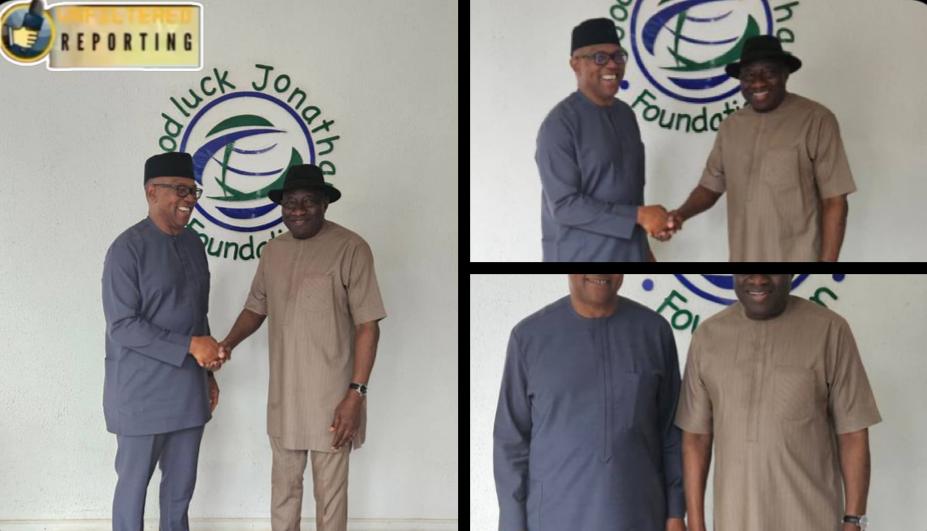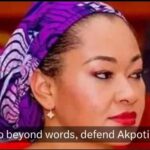Peter Obi, Jonathan in Abuja Closed Door Meeting

Former presidential candidate of the Labour Party, Peter Obi, on Thursday, visited former President Goodluck Jonathan at his Abuja residence, where the two leaders held a closed-door meeting that has since stirred public interest and political speculation.
Obi, who made the visit public through his official social media handle, described the engagement as constructive and focused on Nigeria’s pressing challenges. While withholding the full details of their conversation, he hailed Jonathan as “an elder brother, statesman, and leader,” stressing that their discussions revolved around issues affecting the country’s future.
The meeting has generated mixed reactions within political circles. Coming at a time when conversations are intensifying about possible alignments ahead of the 2027 general elections, many observers see the development as a potential step towards coalition-building among opposition figures.
Others, however, maintain that such consultations may simply reflect routine exchanges between senior political leaders concerned about governance and national stability. Jonathan, who governed Nigeria between 2010 and 2015 under the Peoples Democratic Party (PDP), remains a respected voice across the political spectrum.
Despite leaving office a decade ago, he continues to wield influence as both a statesman and a mediator, often sought after for advice on political and governance issues.
Obi, on the other hand, rose to national prominence in the 2023 elections as the flag bearer of the Labour Party, drawing massive support particularly from youths and reform-minded Nigerians. Images and short video clips of Obi’s arrival at Jonathan’s residence have since circulated online, fueling widespread debate.
Supporters of both men welcomed the meeting as a positive sign of unity, while some political commentators cautioned against hasty conclusions, noting that Obi and Jonathan have met on several occasions in recent years to discuss matters of national importance.
Analysts suggest that the significance of the Abuja meeting lies not just in its content — which remains undisclosed — but in its timing. With less than two years before the next election cycle begins in earnest, the moves and consultations of high-profile leaders like Obi and Jonathan are being closely watched for clues about possible realignments.
So far, Jonathan’s camp has remained silent on the meeting, offering no official statement. Obi’s brief remarks, however, emphasized cordiality and national interest, portraying the visit as part of his ongoing engagements with respected leaders.
Whether the meeting will evolve into a stronger political collaboration remains uncertain, but it has undoubtedly added fresh momentum to conversations about Nigeria’s political direction ahead of 2027.








